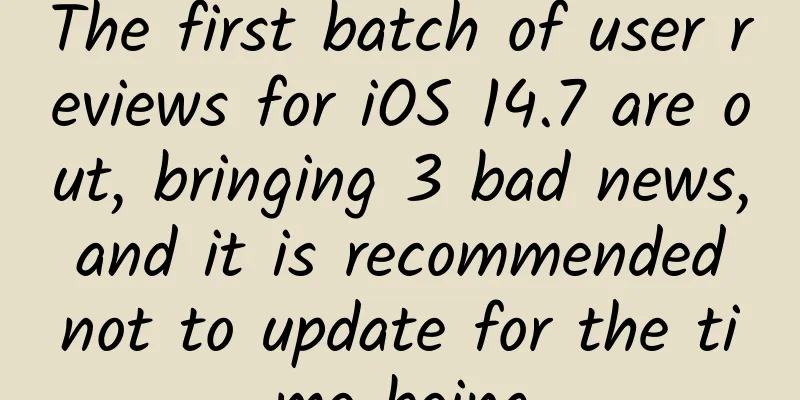Will Apple's iPhone fall behind in the 5G era? Self-developed, Intel is unreliable, Samsung and Qualcomm refuse to sell

|
There is no doubt that 5G mobile phones will be launched and pre-commercialized in 2019. At this year's MWC, Samsung, Huawei, Xiaomi, ZTE, OPPO and other companies have released or displayed 5G mobile phones, but Apple is not there. So far, Apple has not made any statement on 5G mobile phones. On the bright side, Apple has always disliked pursuing immature black technologies, but Apple may have its own unspeakable secrets, that is, Apple will face difficulties in baseband selection in the 5G era - there is no information about self-developed 5G baseband, Intel's 5G baseband is not going smoothly, and it is said that Samsung and Qualcomm have been rejected.
Taiwan's Electronic Times reported that Apple intended to purchase 5G basebands from Samsung and Qualcomm, but was rejected by both. Samsung's reason was insufficient production capacity. Qualcomm did not give a reason, but considering the current relationship between the two parties, it is possible that Qualcomm blocked Apple. There are not many details in this report. Looking at the reasons why Samsung and Qualcomm refused to sell 5G chips to Apple, it is a bit hard to believe - Apple is still the second largest smartphone manufacturer with annual sales of 200 million, and its positioning is high-end. Apple's 5G baseband is a super large order, and manufacturers are too busy to grab it. It is a bit unbelievable to reject Apple's temptation. It can only be said that the two parties did not reach an agreement. Samsung could not have refused because of insufficient production capacity. It must be that one of the two sides asked for too high a price, which led to a bad ending. The news that Apple was rejected from purchasing 5G basebands may not be true, but it is true that Apple faces challenges in 5G mobile phones. In this regard, Apple faces great difficulties whether it develops its own chips or purchases products from other companies. Apple's A series processors are among the best in the world in terms of performance and craftsmanship, but Apple's A processors have never had an integrated baseband. Previously, they relied on companies such as Infineon and Qualcomm. Last year, they began to fully use Intel basebands. However, Apple's self-developed baseband is also an open secret in the industry. However, it is not easy to develop self-developed baseband, even for a company as wealthy as Apple. Considering the advent of the 5G era, it is incomplete for Apple to only be able to handle the 4G baseband. The 5G baseband has two networking modes, NSA and SA, plus it needs to be backward compatible with 2G/3G/4G networks. It is not easy for a company like Apple that has no experience in self-developed baseband. Even if the research and development is successful, it still needs to undergo network testing by operators around the world, which requires time and patience. NVIDIA failed in the 4G baseband because of this.
5G baseband relies on Intel? There was such a saying earlier, but as Apple's comrade-in-arms, it is hard to say whether Intel is a bad teammate, although the latter has long announced the 5G baseband XMM8160, which supports 4G, 3G, 2G and six-mode standards, and also supports 5G SA and NSA networking. The process technology should be 10nm and is expected to be released in 2020. However, Intel has also had many minor problems with its 5G baseband. The strong parameters on paper do not necessarily mean that the chip will be so. Earlier, an Intel engineer revealed that the baseband yield was low and there were problems such as heating. More importantly, after the large-scale use of Intel baseband last year, Apple iPhone XS/XR and other mobile phones were exposed to have problems such as poor signal quality, which will also shake the position of Intel baseband. As for Samsung, it has already used the Exynos 5100 baseband on its Galaxy S10 5G phone. The commercial speed is faster than Huawei and Qualcomm, and the baseband parameter indicators are also higher. However, Samsung also lacks experience in large-scale application of 5G baseband. Apple has been de-Samsungizing in recent years, but it has no choice but to use OLED screens. If the baseband still relies on Samsung... The remaining options are Huawei, Qualcomm and MediaTek. Huawei's Balong 5000 baseband has the strongest indicators at present and is one of the fastest in progress. However, Huawei's baseband has no record of being sold outside the company. It has always been self-produced and sold, and has become the key to Huawei's product differentiation. As for MediaTek, their Helio M70 baseband specifications are weaker than other companies' 5G basebands, and their progress is also slower. Although there have been rumors that Apple has discussed the supply of 5G basebands with MediaTek, there has been no follow-up. After all the twists and turns, Apple may still not be able to get around Qualcomm in the 5G era. The news that Qualcomm refuses to sell 5G chips to Apple is a bit puzzling, because Qualcomm was determined to win back Apple's orders in the 5G era, and it would not be easy to let go of Apple as a big customer. No one would miss out on orders worth billions of dollars every year. In short, as 5G is about to arrive, Apple is facing a dilemma in choosing 5G chips - none of the options, Qualcomm, Samsung, Intel, MediaTek, Huawei, and self-developed ones, is easy to choose. It is unacceptable for Apple to completely rely on any one manufacturer, but there are not many choices in the supply of baseband chips, and even fewer in the 5G era. Fortunately, Apple still has plenty of time. Although 5G mobile phones are very popular, sales were not high before 2020. IDC statistics show that 5G mobile phone sales in 2019 were only 6.7 million units. Sales may reach 400 million units in 2023, but the market share will only be 26%. 4G mobile phones are still the mainstream. |
<<: This is the fourth iPhone price cut this year. Will Apple cut prices once a month?
>>: "Q" is bouncy and delicious, a sneak peek at the new features of the new generation Android Q
Recommend
Disassembly of the fission method of Honor of Kings
Today's case comes from the ongoing 18th Priv...
WeChat's new version has huge changes! Is it going to become a live broadcast software?
WeChat has been updated again. Although this vers...
3 things you don’t know about getting featured in the App Store
In some reports on overseas games, we often find ...
Ruan Yifeng: Cyclic loading of JavaScript modules
"Circular dependency" means that the ex...
How to leverage hot events to boost website traffic?
Website traffic has always been a common topic. N...
Galaxy Z Flip's "glass screen" doesn't seem as durable as Samsung claims
Samsung launched its second foldable phone, the G...
How does Android Binder achieve IPC copy only once? A complete explanation of mmap mechanism!
In Android inter-process communication (IPC), Bin...
Event planning process summary and case studies!
1. Ideas for event planning 1. Five elements of e...
iOS 15 new features fully exposed: "Find" will bring 3 major upgrades, Apple fans: It's amazing
Not only that, after upgrading to iOS15, Apple wi...
Wanqing's popular wealth creation course that everyone can copy, a simple, practical and replicable wealth action guide
Wanqing's popular wealth creation course that...
Southwest Associated University Study Diary - Fan Deng Reading
Southwest Associated University Study Diary - Fan...
Hawking passed away. How do brands use copywriting to commemorate his greatness?
When I was very young, I learned about the scient...
Dismantling the "Hot Pot Restaurant" Gamification Private Domain Community Case
The Internet circle is familiar with the concept ...
How do Tik Tok influencers create hits?
Summer is here, and Douyin's "Comprehens...
Live broadcast skills: How to create a live broadcaster’s personality?
It is not easy to become a qualified anchor. You ...









